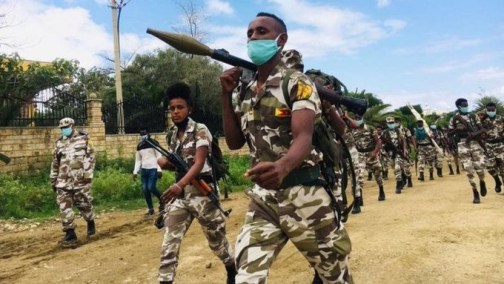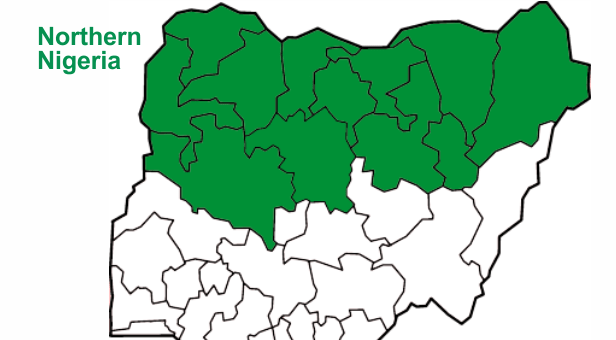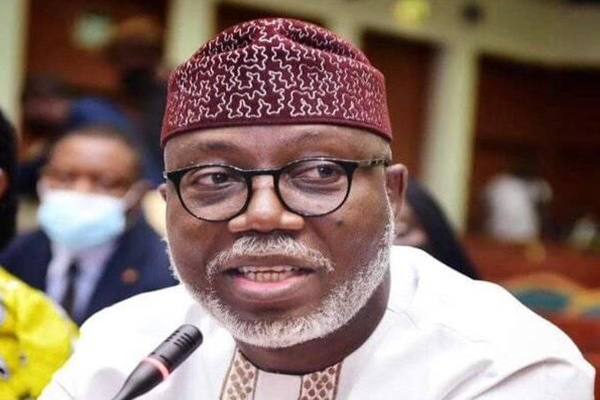Tigrayan rebels announced on Monday they had withdrawn from northern Ethiopia’s Amhara and Afar regions and retreated to Tigray, marking a new turning point in the 13-month war which has left thousands of people dead.
“We decided to withdraw from these areas to Tigray. We want to open the door to humanitarian aid,” Getachew Reda, spokesman for the Tigray People’s Liberation Front (TPLF), told AFP.
The decision was made a few weeks ago, Getachew said, later tweeting: “We have just completed the withdrawal of our forces from both #Amhara&#Afar regions.”
The move marks a major reversal by the rebels, who previously dismissed the government’s insistence on their withdrawal from Afar and Amhara for talks to begin as “an absolute non-starter”.
But Prime Minister Abiy Ahmed’s spokeswoman Billene Seyoum said Monday’s rebel announcement was a cover-up for military setbacks.
“The TPLF have sustained great losses over the past weeks and hence are claiming ‘strategic retreat’ to make up for defeat,” she told AFP.
“There are still pockets in the Amhara region in which they remain as well as other fronts they are attempting to open the conflict.”
The war between pro-Abiy forces and the TPLF has triggered a severe humanitarian crisis and last week the UN’s top rights body ordered an international probe into alleged abuses.
Since late October, the two sides have each declared major territorial advances, with the TPLF at one point claiming to be around 200 kilometres (125 miles) from the capital Addis Ababa by road.
Abiy, the 2019 Nobel Peace Prize winner, headed to the front last month, according to state media, and the government has since claimed to have retaken several key towns.
Communications have been cut in the conflict zone and access for journalists is restricted, making it difficult to verify battlefield claims.
Appeal to UN
The fighting has sparked alarm among the international community, as diplomatic efforts led by the African Union to broker a ceasefire failed to yield any visible breakthrough.
Getachew said TPLF leader Debretsion Gebremichael had written to UN Secretary-General Antonio Guterres to inform him about the decision, with the Security Council expected to hold a closed-door meeting about Ethiopia later Monday.
Ireland’s UN envoy Geraldine Byrne Nason, who called the meeting, told reporters the TPLF pullout offered “a welcome opportunity to hopefully create political space for dialogue”.
According to copies of the letter circulating on social media, Debretsion asked the Security Council to ensure the withdrawal of Amhara forces and Eritrean troops from western Tigray.
“I can confirm that the letter is being studied,” said Farhan Haq, deputy spokesman for Guterres.
Both Amharas and Tigrayans lay claim to western Tigray, which has been occupied by Amhara forces since the war erupted, triggering large-scale displacement and US warnings of ethnic cleansing.
“We need the international community to take action,” Getachew said.
Amnesty and Human Rights Watch last week accused Amhara forces of systematically detaining, torturing and starving Tigrayan civilians living in the contested region.
Humanitarian ‘siege’
Previously TPLF leaders had refused to pull out of Amhara and Afar unless the government ended what the rebels describe as a humanitarian “siege” of Tigray.
Aid workers have repeatedly complained that security and bureaucratic hurdles are impeding access to the region, where some 400,000 people are thought to be on the verge of famine.
The UN also suspended humanitarian flights from Addis Ababa to Tigray’s capital Mekele in October amid a campaign of government air strikes in the region. The flights resumed in November.
Fears of a rebel march on the capital prompted countries such as the United States, France and Britain to urge their citizens to leave Ethiopia as soon as possible, although Abiy’s government insisted the city was secure.
The war broke out in November 2020 when Abiy sent troops into Tigray to topple the TPLF, accusing it of attacking army camps.
The Nobel Peace laureate vowed a swift victory but the rebels mounted a shock comeback, recapturing most of Tigray by June before advancing into Afar and Amhara.
The fighting has displaced over two million people while 9.4 million need food aid, according to UN estimates, with reports of massacres and mass rapes by both sides.
On Friday, the UN Human Rights Council voted to send international investigators to Africa’s second most populous nation amid warnings of looming generalised violence, in a move slammed by Addis Ababa.





